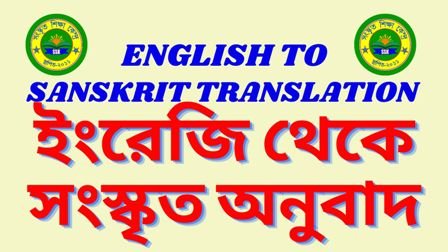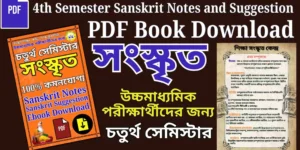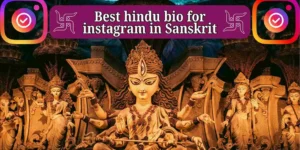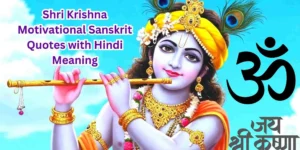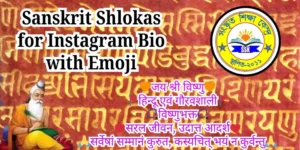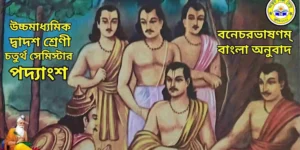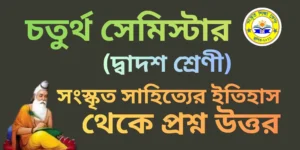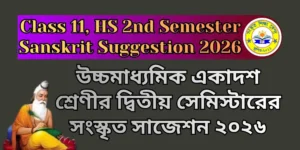English to Sanskrit translation (ইংরেজি ভাষা থেকে সংস্কৃত ভাষায় অনুবাদ), Sanskrit to English translation (সংস্কৃত ভাষা থেকে ইংরেজি ভাষায় অনুবাদ)
Sanskrit to English translation Google, translate English to Sanskrit google, translate Sanskrit to English Google, Sanskrit to English, English to Sanskrit, English to Sanskrit translation Google,
Table of Contents
English to Sanskrit Translation
We have divided the English-to-Sanskrit translation into ten parts in total. Each part has ten translations.
1st Part- English to Sanskrit Translation
| (1) Do not be proud of your men, wealth and youth, for they are all taken away in an instant by Death. Answer:- मा कुरु धनजनयौवनगर्वम्, हरति निमेषात् कालः सर्वम्। |
| (2) A person, who does not hate nor desire anything, should be deemed as an ascetic. He easily becomes free from bondage. Answer:- यः किञ्चिन्नावजानाति न चाकाङ्क्षते, स साधुरेव मन्तव्यः। लीलयैव स वाधाविनिमुक्तो भवति |
| (3) That servants succeed in performing great works is due to the influence of their masters. But this is not to be wondered at. Answer:- মহৎকার্যেষু ভৃত্যানাং যং সাফল্যং, তত্ত্ব প্রভোঃ প্রভাবাদের সমুৎপদ্যতে। নৈতদ বিস্ময়করম্। |
| (4) You should lead your horses again, after taking a rest for a short while. Friends engaged in friends’ work never wait long on the way. Answer:- ক্ষণং বিশ্রম্য পুনস্তবাশ্বান্ চালয়। পথি নাপেক্ষম্ভে সুহৃদো দীর্ঘং বন্ধুকার্যে নিযুক্তাঃ। |
| (5) Anger is sometimes justified. He is a coward or a selfish person, who is not angry even when he sees a wrong done to an innocent man. Answer:- কদাচিৎ ক্রোধঃ সমীচীনঃ। নিরীহনিপীড়নং পশ্যন্নপি যঃ ক্রুদ্ধো ন স্যাং, স জনো ভীরুঃ স্বার্থপরায়ণো বেতি কথিতঃ। |
| (6) Nothing should be done in a hurry. Think before you act. Proceed cautiously, or you will get into trouble. Answer:- সহসা বিদধীত ন ক্রিয়াম্। কার্যাৎ প্রাগেব চিন্তা করণীয়া, সাবধানমগ্রেসর নতুবা ত্বং বিপদি পতিষ্যসি। |
| (7) Better than dishonour, dying lasts but a moment, but dishonour endures forever, and happiness never comes through it. Answer:- অপমানাৎ মৃত্যুরেব শ্রেয়ান। মৃত্যুঃ ক্ষণিকঃ, অপমানং হি শাশ্বতম্। সুখং চ তস্মাৎ কদাচিত্রোৎপদ্যতে। |
| (8) Is there any man on earth who always acts justly, and yet has no enemy? Justness is not appreciated by wicked men. Answer:- অস্ত্যস্মিন্ জগতি কোঽপি নিত্যং ন্যায়নিষ্ঠঃ অজাত শত্রুশ্চ জনঃ? দুর্জনৈন্যায়-পরায়ণতা ন সম্মতা। |
| (9) The name of Gautama’s groom was Chandaka. He wept much when his master ordered him to return home alone. Answer:- গৌতমায়াঃ ভর্তুর্নাম চণ্ডকঃ। গৃহং প্রতি একাকী গমনায় প্রভুনাদিষ্টঃ স ভূশং ক্রন্দিতবান্। |
| (10) The night will pass away, the morning will appear, the sun will rise, and the whole world will smile. Answer:- রাত্রিরতিক্রমিষ্যতি, প্রাতরাগমিষ্যতি, ততশ্চ রবিরুদেয্যতি, সর্বঞ্চ জগৎ হসিয্যতি। |
2nd Part- English to Sanskrit Translation
| (11) Helping the distressed and feeding the hungry are considered more meritorious than offering sacrifices to the gods of heaven. Answer:- দেবকল্পিতাহুতিভ্যোঽপি ক্ষুধাপীড়িতেভ্যোঽন্নদানং দুঃস্থসাহায্যঞ্চ গরীয়ঃ সম্মতম্। |
| (12) Fortune favours the brave. A coward lives a life of shame and misery and is hated by all. Answer:- সৌভাগ্যম্ অনুগৃহাতি বীরম্। ভীরোজীবনং হি লজ্জাক্লেশকরম্। স চ সর্বৈণিতো ভবতি। |
| (13) An owl sleeps in this house all day and comes out when it is dark. He cannot see in the daytime. Answer:- Ans. পেচকোহস্মিন্ গৃহে দিবা নিদ্ৰাতি, সমাগতে চ তমসি বহিরাগচ্ছতি। স দিবা ন পশ্যতি। |
| (14) The astronomer knows much about the stars, but he can not say how many stars there are in the sky. Answer:- জ্যোতির্বিদ নক্ষত্রাণি সবিশেষং জানাতি। স তু ন জানাতি কতি তানি সত্তি নভসি। |
| (15) It is a hot day. But we do not feel the heat by the sea. We mean to sleep on the shore. Answer:- উত্তপ্তোইয়ং দিবসঃ। নতু সমুদ্রতীরবর্তিনো বয়ং তাপকেশমনুভবামঃ। নিদ্রাতুমিচ্ছামো বয়ং বেলাভূমৌ। |
| (16) The king should use his strength for the suppression of the wicked and not for the oppression of the weak. Answer:- রাজশক্তিঃ দুষ্টদমনায় এর প্রযুক্তব্যা নতু দুর্বল-পীড়নায়। |
| (17) King Dasaratha had three queens, of them, the chief queen, Kausalya gave birth to Rama, Kaikeyi to Bharata, and Sumitra to Lakshmana and Satraughna. Answer:- রাজ্ঞো দশরথস্য তিস্লো মহিষ্য আসন্। তাসাং প্রধানা মহিষী কৌশল্যা রামং, কৈকেয়ী ভরতং, সুমিত্রা চ লক্ষ্মণশক্রয়ৌ প্ৰাসূত। |
| (18) Then when the thirteenth year had ended, the five Pandavas took their abode in an excellent city in Virata’s territory. Answer:- অথ ত্রয়োদশবর্ষাবসানে পঞ্চপাণ্ডবা বিরাটস্য রাজ্যান্তর্গতে রম্যে নগরে আবাসমগৃহন্। |
| (19) If you do not fight the enemy, you will be failing in your duty, and people will speak ill of you. Answer:- শত্ৰুণা সহ যুদ্ধং ন ক্ৰিয়েত চেৎ, তহি ত্বং কর্তব্যাৎ ভ্রংশেথাঃ। লোকাশ্চ তে নিন্দাং করিয্যক্তি। |
| (20) The sun was about to set, and the daylight was fading. The evening breeze stirred the trees of the forest. Answer:- রবিরস্তং গমিষ্যন্ আসীৎ, দিবালোকঃ ক্ষীণতাং গতঃ। সান্ধ্যঃ পবনো বনস্য বৃক্ষান্ কম্পয়তি স্ম । |
3rd Part- English to Sanskrit Translation
| (21) Knowledge is power. This power is superior to physical strength and can work wonders. Answer:- জ্ঞানং হি শক্তিঃ। ইয়ং শক্তিঃ শরীরবলাং গরীয়সী। অদ্ভুতং কার্যঞ্চ সাধয়িতুং সমর্থা। |
| (22) He had a great liking for travel, and wherever he went he wanted to learn something. Answer:- তস্য ভ্রমণে মহতী রুচিরাসীৎ, যত্র যত্র চ স গতবান্ তত্র তত্রৈব স কিমপি জ্ঞাতুমৈচ্ছং। |
| (23) If you will only do as I bid you, you will have nothing to be afraid of. So long as you trust me, I shall look after you. Answer:- যদি ত্বং কেবলং মম যথানির্দেশং কর্ম কুর্যাঃ তহি কুতোঽপি তে ভয়ং ন ভবিষ্যতি। যাবৎ ত্বং ময়ি বিশ্বাসং করোষি, তাবৎ ত্বামহং দক্ষ্যামি। |
| (24) Freedom is liked by all. Even animals are unhappy if they are shut up in cages and will try to escape. Answer:- সর্বেষাং বহুমতা স্বাধীনতা। পশবোঽপি যদি পিঞ্জরাবদ্ধাঃ, তর্হি অসুখিনো ভবস্তি শুভয়ে চ যতিষ্যতে। |
| (25) Cowards die many times before their death. The valiant never taste death but once. Answer:- যে নাম ভীরবো জনাঃ, তে মরণাৎ প্রাগেব বহুশো ম্রিয়ন্তে। বীরাস্ত সকৃদেব মৃত্যুমুপযাক্তি ন হি কদাপি যন্ত্রণাং লভস্তে। |
| (26) The next morning the Princess took leave of all, with tears in her eyes and with a knife in her hand she went to the forest with her friend. Answer:- পরেদ্যুঃ প্রাতঃ সাশ্রুনয়না রাজকুমারী সর্বানত্যজং। সখীভিশ্চ সহ অসিপুত্রিকাপাণিঃ বনায় প্রতঙ্গে। |
| (27) The rains have set in, and the sky is overcast with dark clouds, where the lightning flashes from time to time. Answer:- বর্ষাকালঃ সম্প্রবৃত্তঃ। নভঃ কৃষ্ণমেঘৈরাবৃতম্। তত্র কালে প্রায়শঃ বিদ্যোততে বিদ্যুৎ। |
| (28) We are proud of our motherland. We must defend our country by all means, even at the cost of our lives. Answer:- অস্মাকং জন্মভূমেঃ গর্বমনুভবামো বয়ং, স্বপ্রাণ ব্যয়েনাপি সর্বথা বয়ং স্বদেশং রক্ষেম। |
| (29) Sanskrit is the richest of all the Languages of the world. So everyone should learn Sanskrit. Answer:- ইহ জগতি ভাষাসু সংস্কৃতভাষা সমৃদ্ধতমা। অতঃ সর্বৈঃ খলু সংস্কৃতভাষা শিক্ষণীয়া। |
| (30) 30. Man is the maker of his fate, so do not lie idle, but try to attain the goal. Answer:- নর এব স্বীয়ভাগ্যস্য স্রষ্টা, অত আলস্যং মা সমাশ্রয়, অপিতু সিদ্ধিং লব্ধং যতস্ব। |
4th Part- English to Sanskrit Translation
| (31) Lost wealth may be replaced by industry, lost knowledge by study, lost health by medicine but lost time is gone forever. Answer:- হৃতং ধনং শ্রমেণ পুনর্লভাতে, অধায়নেন নষ্টং জ্ঞানং প্রাপ্যতে তথা বিনষ্টং স্বাস্থ্যমৌষধেন হি পুনঃ সংসাধ্যতে। কালস্ত চিরায় গতো ভবতি। |
| (32) A virtuous man never practises vice. He always thinks of doing good to others and conquers his internal enemies. Answer:- ধার্মিকো নরঃ কদাপি পাপং ন করোতি। স হি সদান্যেযাম্ মঙ্গলং বিধাতুং তথাস্তরান শত্রুন্ বিজেতুং চিন্তয়তি। |
| (33) The rich man devoted himself to the service of the poor. He did not live in luxury, but he died in peace. Answer:- বিত্তবানসৌ জনো দরিদ্রসেবায়াম্ আত্মানং নিয়োজয়ামাস। কদাপি স বিলাসং নোপভুক্তে, স তু শাস্তিমাস্থায় মৃতঃ। |
| (34) Maharshi once took his son to the hills. There the boy poet wandered at will, and his joy knew no bounds. Answer:- একদা মহর্ষিঃ স্বপুত্রমনুগিরমনয়। তত্রাসৌ শিশুকবিঃ স্বেচ্ছয়াভ্রমং, আনন্দং চ তস্য নির্বাধমাসীৎ। |
| (35) Valmiki was formally a robber, but later he turned out to be a sage. But his story is not found in his own work, the Ramayana. Answer:- বাল্মীকিরাদৌ দস্যুরাসীৎ, ততশ্চ স মুনিজীবনং প্রত্যাগতঃ। স্বরচিতে রামায়ণে তু তস্য জীবনচরিতমস্মাভিন পরিদৃষ্টম্। |
| (36) The vast desert looks like a terrible ocean of sand. Nowhere is water to be found. How shall I save my life? Answer:- বিশালেয়ং মরুভূমিঃ ভয়ঙ্করো বালুকা মহাসাগর ইব দৃশ্যতে । কুত্রাপি জলং নাবলোক্যতে। কথমহং স্বপ্রাণান্ রক্ষিয্যামি? |
| (37) If you do not take up arms against the enemy, you will be turning away from your duty and people will speak ill of you. Answer:- যদি ত্বং রিপূন্ প্রতি অস্ত্রাণি ন নিক্ষিপসি তৰ্হি ত্বং কর্তব্যভ্রষ্টো ভবিষ্যসি জনাশ্চ তে অপবাদং করিষ্যক্তি। |
| (38) Shame upon the throne on account of which the king distrusts his son and cannot sleep quietly at night. Answer:- পুত্রে বিশ্বাসাভাবাৎ সিংহাসনমপি নৃপস্য লজ্জাকরং ভবতি, নক্তমপি তস্য সুনিদ্রা ন সঞ্জাতা। |
| (39) Work carefully so that there may not be any errors. A little done well is better than much done badly. Answer:- সাবধানং কর্ম কুরু যেন হি তস্মিন্ কোঽপি মন্দো ন জায়তে। প্রভূতাং মন্দানুষ্ঠানাং স্বল্পমপি সুষ্ঠুতয়ানুষ্ঠানং বরম্। |
| (40) No animal can live without food. Food keeps us alive. But it does harm if we eat more than we need. Answer:- খাদ্যং বিনা প্রাণিনো ন জীবত্তি। খাদ্যং হি অস্মান্ জীবয়তি। প্রয়োজনাতিরিক্তং তু খাদ্যমস্মাকমপকরোতি। |
5th Part- English to Sanskrit Translation
| (41) May the cows give enough milk. May the cloud pour in time. May the earth be rich with all sorts of crops. Answer:- ধেনবঃ প্রচুরং দুগ্ধং দদতু, কালে পর্জন্যো বৰ্ষতু। পৃথিবী সর্ববিধশস্যৈঃ সমৃদ্ধা ভবতু। |
| (42) On hearing this, the king’s eyes became red with anger and he ordered the banishment of his wicked son. Answer:- ইদমাকর্ণ নৃপস্য নয়নে ক্রোধেনারতে সঞ্জাতে। স তস্য দুষ্ট তনয়স্য নির্বাসনায় আদিষ্টবান্। |
| (43) The hermit was strolling on the street singing devotional songs. He deserves the aid of worldly people. Answer:- ভক্তিগীতিং গায়ন্ তাপসঃ পথি বিচরতি স্ম। স হি সাংসারিকজনানাং সাহায্যং লকুমহতি। |
| (44) School masters always pardon those students who do not speak lies. Untruthfulness leads to miseries of all sorts. Answer:- যে ছাত্ৰা মিথ্যা ন ভাষতে, বিদ্যালয়স্য শিক্ষকাস্তান্ সদা ক্ষমন্তে। অনুতং হি সর্ববিধ দুঃখেভ্যঃ কল্পতে। |
| (45) Early to bed and early to rise, Make a man healthy, wealthy and wise. Answer:- তূর্ণং শয্যাগ্রহণং তথা সত্বরং শয্যাপরিত্যাগঃ, মানবং স্বাস্থ্যবং, ধনবস্তুং, জ্ঞানবক্তৃঞ্চ করোতি। |
| (46) If we want to make our motherland prosperous we must be disciplined citizens and soldiers. Answer:- বয়ং চেদস্মাকং জন্মভূমিং সমৃদ্ধাং বিধাতুমিচ্ছামস্তর্হি বয়মবশ্যমের নিয়মানুবর্তিনঃ সৈনিকাশ্চ ভবে। |
| (47) Three beautiful girls were playing on the bank of a river and they found two stags carried away by the current of the river. Answer:- তিস্রো রম্যা বালিকা নদীতীরে ক্রীড়ন্ত্যো নদীস্রোতসা নীয়মানং হরিণদ্বয়মপশ্যন্। |
| (48) While she was going to the garden to pluck flowers from the beautiful creepers, she found four boys weeping bitterly. Answer:- রম্যা লতাঃ কুসুমানি চেতুমুদ্যানং গচ্ছত্তী সা করুণং রুদতশ্চতুরো বালকানপশ্যং। |
| (49) The night was awfully dark, a fierce storm was raging, and his path lay through a forest infested with bears and tigers. Answer:- ভীষণমন্ধকারময়ী রজনী আসীৎ। প্রবলা ঝটিকা প্রবহতি স্ম। ব্যাঘ্রশূকর সস্কুলে বলে তস্য গমনমার্গ আসীৎ। |
| (50) I appear age after age for the protection of the good, destruction of the evildoers, and for the establishment of righteousness. Answer:- অহং সাধূনাং পরিত্রাণায়, দুষ্কৃতাং বিনাশায়, ধর্মসংস্থাপনায় চ যুগে যুগে সম্ভবামি। |
6th Part- English to Sanskrit Translation
| (51) When Sakuntala was leaving the hermitage, one of her two companies ions said “If the king cannot remember you, show him this ring which he gave you.” Answer:- যদা শকুন্তলা আশ্ৰমং পরিত্যজতি স্ম তদা তস্যাঃ সখ্যোঃ অন্যতরা উবাচ- যদি রাজা ত্বাং স্মর্তুং নালং ভবতি, ভর্তি তেন প্রদত্তমঙ্গুরীয়কমিদং তস্মৈ প্রদর্শয়েঃ। |
| (52) A poor man who earns his livelihood by honest means is happier than a Richman who has amassed a huge fortune by dishonest means. Answer:- অসদুপায়েন অর্জিত প্রচুরধনাৎ ধনিকাদপি যো দরিদ্রঃ সদুপায়েন জীবিকামজয়তি, স সুখিতরো ভবতি। |
| (53) He had been a good king who worked day and night for the welfare of his poor subjects. He was not at all selfish and was loved by all. Answer:- অহর্নিশং যো দরিদ্রপ্রজানাং মঙ্গলায় কার্যমকরোৎ স হি উত্তমো নরপতিরাসীৎ। স এর নিঃস্বার্থপরঃ সর্বেষাঞ্চ সম্মত আসীৎ। |
| (54) One day the merchant’s daughter saw from her palace a beggar woman crying for food. Answer:- একদা বণিজঃ কন্যা প্রাসাদাৎ খাদ্যায় রুদতীং কাঞ্চিং ভিক্ষুকামপশ্যৎ। |
| (55) What is the good of this perishable body if no use of it is made for the benefit of mankind? Answer:- অনেন নশ্বরে শরীরেণ কিম্ যদি জনানাং কল্যাণায় ন বিনিযুজ্যতে। |
| (56) Our representatives rule the country now. If the country is not properly ruled it is our fault. Answer:- ইদানীমস্মাকং প্রতিনিধয়ো দেশং শাসতি। যদি দেশঃ সম্যক্ পাল্যতে তৰ্হি সোঽস্মাকং দোষঃ । |
| (57) A man without character is but a beast. We must shun the company of such a man. Answer:- চরিত্রং বিনা নরঃ পশুরেব। তাদৃশনরস্য সংসর্গঃ অস্মাভিরবশ্যমেব পরিত্যাজ্যঃ। |
| (58) While walking near the hill in the evening, we saw a tiger coming down from the hill. Answer:- সায়ং পর্বতং নিকষা ভ্রমন্তো বয়ং পর্বতাদবতরম্ভমেকং ব্যাঘ্রমপশ্যাম। |
| (59) It is better for me to live as a beggar in this world than to kill the high-souled preceptors and superiors. Answer:- ইহ জগতি উদারচরিতানাম্ আচার্যাণাং গুরুজনানাঞ্চ নিধনাপেক্ষয়া ভৈক্ষ্যেণ জীবনধারণমপি মে বরম্ । |
| (60) As soon as a man dies, all earthly cares cease to exist. So every man must try to be a famous man by performing duties honestly. Answer:- যাবৎ নরো ম্রিয়তে তাবৎ সর্বেষাং জাগতিকভাবনানাং বিরতির্জায়তে। অতঃ সর্বে জনাঃ সাধু কর্তব্যসম্পাদনেন প্রসিদ্ধমানবা ভবিতুং যতত্ত্বে এব। |
7th Part- English to Sanskrit Translation
| (61) When Jimutabahana was saying this, a shower of flowers fell from heaven and Garuda was surprised. Answer:- যদা জীমূতবাহন একমবদং, তদা স্বর্গাৎ পুষ্পবৃষ্টিরপতং গরুড়শ্চ বিস্মিতোহভবং। |
| (62) He for whom you grieve day and night, has returned safely after conquering the foe in battle. Answer:- যস্য কৃতে ত্বং রাত্রিন্দিবং শোচসি, স রণে শত্রুং বিজিত্য নিরাময়ঃ প্রত্যাগতঃ। |
| (63) Then Krishna personally entered the battlefield bow in hand, in order to kill the wicked demon who was desirous of conquering three worlds Answer:- তদা ধনুষ্পাণিঃ কৃষ্ণঃ ত্রিভুবনং জিগীষুং দুষ্টং দানবং হস্তং স্বয়ং যুদ্ধক্ষেত্রং প্রাবিশং। |
| (64) All things have been made by God. In the beginning, He made all things have life and those that have no life. Answer:- ঈশ্বরঃ সর্বাণি বস্তুনি সৃষ্টবান্। প্রারম্ভে স চেতনানি বস্তুনি নির্মিতবান্ তথা অচেতনান্যপি। |
| (65) God Who sees everything is ever awake in our hearts. Just remember this whenever you are tempted to commit a misdeed. Answer:- সর্বদ্রষ্টা ভগবান্ সদাম্মাকং হৃদি জাগরূকো ভবতি। স্মর্যতাং তারদিদং যদৈব তুং পাপাচরণে প্রলুকো ভবসি। |
| (66) In autumn the sky becomes free from clouds. How pretty looks the moonlit sky! Answer:- শরদি নভো মেঘৈর্বিমুক্তং ভবতি। চন্দ্রকিরণোদ্ভাসিতং গগনং কীদৃশং রম্যং দৃশ্যতে। |
| (67) Beauty may forsake the moon, and the Himalayas may be snow-free. I shall never transgress my father’s words. Answer:- সৌন্দর্যং চন্দ্রং পরিত্যজেং, হিমবান্ তুর্যারৈমুক্তোভবেৎ, অহন্তু কদাপি পিতুর্ব্যকাং না লঙ্ঘয়েয়ম্। |
| (68) Do not look down upon the poor. Help them by all means. God will help you. Answer:- দরিদ্রান্ মা অবজানীহি। সর্বথা তেষাং সাহায্যং কুরু। ঈশ্বরস্তব সহায়ো ভবিষ্যতি। |
| (69) There is no good in warfare. It leads to no gain. nor happiness. Even victory is nothing in comparison with what is lost. Answer:- যুদ্ধকাৰ্যে কিমপি মঙ্গলং ন বর্ততে। ইদং ন চ লাভায় ন চ সুখায় কল্পতে। বিজয়োঽপি বিনষ্টবস্তুপেক্ষয়া অসার এব। |
| (70) One should practise virtue as long as one lives. because virtue is the only friend which follows one even after death. Answer:- মানবো যাবজ্জীবং ধর্মমাচরেৎ। যত এক এর সুহৃদ ধর্মো নিধনেঽপি যোহনুসরাত। |
8th Part- English to Sanskrit Translation
| (71) While he was thinking about how he should accomplish his desired object, the whole night passed, so he had to pass a sleepless night. Answer:- প্রারীলিতং বস্তু কথং সম্পাদনীয়মিতি চিন্তয়তস্তস্য সমগ্রা রজনী অপগতা। অতো বিনিদ্রা রজনী অতিবাহিতা এবাসীং। |
| (72) What is the use of grief? One who is dead does not come back. Premature death occurs as a result of sin. Answer:- শোকেন কি? মৃতো নরো ন প্রত্যাগচ্ছতি, পাপফলেন হি অকালমৃত্যুর্জায়তে। |
| (73) I am tired of walking. I shall now go home. take some food and then sleep. Answer:- ভ্রমণেনাহং শ্রাস্তোহস্মি । অধুনাহং গৃহং গমিষ্যামি। কিঞ্চিৎ খাদ্যং গৃহীত্বা নিদ্ৰাং গচ্ছ। |
| (74) As a gift without fee is not complete, the virtuous king sold his son and wife as well as himself at Benares and gave him his fee. Answer:- দক্ষিণাং বিনা দানং সম্পূর্ণতাং ন যাতি । ধার্মিকো নৃপতি স্তস্য পুত্ৰং ভার্যাং চ বিক্রীতবান, স্বয়ঞ্চ বারাণস্যাং বিক্রীতঃ সন্ তস্মৈ দক্ষিণাং প্রাযচ্ছৎ। |
| (75) Injure not even a fly, to injure any of His creatures is to sin against God. Answer:- মক্ষিকামপি মা জহি। জীবপীড়নম্ ঈশ্বরং প্রতি পাপম্। |
| (76) Knowledge without modesty is useless modesty is the best virtue, so the learned must try to be modest. Answer:- বিনয়ং বিনা জ্ঞানং বৃথা, বিনয়ো হি শ্রেষ্ঠো গুণঃ, অতো বিদ্বাংসো বিনয়িনো ভবিতুং যতের। |
| (77) We shall try to the best of our ability to render others happy, and then no doubt we shall be happy ourselves. Answer:- বয়মপরং সুখিনং কর্তুং যথাশক্তি যতিষ্যামহে, নিঃসংশয়ং তদা বয়ং সুখিনো ভবেন। |
| (78) There lived in that city a King named Sudraka, who was very powerful, versed in many Sastras and of noble character. Answer:- শূদ্রকনামা কশ্চিদ্ রাজা তত্র নগরে প্রতিবসতি স্ম। সহি অতীব বলবান্, সকলশাস্ত্রবিচক্ষণ উদারচরিত্রশ্চাসীৎ। |
| (79) The prince should not go alone in the darkness. So, I should go after him and see what the matter is. Answer:- রাজপুত্রেণ অস্মিন্নন্ধকারে একাকিনা ন গন্তব্যম্ । অতো ময়া সোহনুগত্তব্যঃ, কিমিদমিতি চ জ্ঞাতব্যম্। |
| (80) So when I look at them, even this vast kingdom cannot give delight. Or it is well said. Answer:- অতস্তান্ পশ্যতো মে মহদপি রাজ্যং ন সৌখ্যমাবহতি। অথবা সাদিমুচ্যতে। |
9th Part- English to Sanskrit Translation
| (81) Then wandering in different countries at his will for a long time he returned to the city again. Answer:- ততঃ স স্বেচ্ছয়া সুচিরং দেশান্তরেষু ভ্রমিত্বা পুনর্নগরং প্রত্যাগচ্ছং। |
| (82) The sky studded with stars on high and the foamy sea below proclaims the glory of the Creator. Answer:- উচ্চৈঃ তারকিতং গগনং নীচৈশ্চ ফেনিলো সমুদ্রঃ স্রষ্টুঃ মহিমানং প্রকাশয়তঃ । |
| (83) Dusmanta was plunged into grief when he found that it was the same ring he gave away to Sakuntala. Answer:- ইদং হি তদেবাঙ্গুরীয়কং যদা দুষ্মত্তেনাবলোকিতং, তদা স দুঃখাভিভূতোহভবং। যদঙ্গুরীয়কং স শকুন্তলায়ৈ প্রাযচ্ছদিতি। |
| (84) Without economy a man cannot be generous, for, if he spends all that he earns, he can help nobody. Answer:- মিতব্যয়ং বিনা নরেণ সদাশয়েন ভবিতুং ন শক্যতে। যতস্তেন যদুপাতে, তস্য সর্বস্য যদি ব্যয়ঃ ক্রিয়তে তদা স কস্যাপি সাহায্যং কর্তুং ন শক্লোতি । |
| (85) The Himalayas are the abode of Gods, the snow-white peaks of the hills touch the cloud under the sky. Answer:- হিমালয়ো হি দেবানামাবাসঃ, পর্বতানাং তুষারশুভ্রাণি শিখরাণি গগনতলে মেঘং অস্পৃশক্তি। |
| (86) What is the good of this perishable body, if no use of it is made for the benefit of mankind? Answer:- অনেন নশ্বরেণ দেহেন কিং কার্য, যদি অনেন পরেষামুপকারো ন বিধীয়তে। |
| (87) Of all animals men and elephants are the most longlived. But we hear of many large trees also living for more than hundreds of years. Answer:- প্রাণিষু নরা গজাশ্চ দীর্ঘতমং জীবনং যাপয়স্তি। অপি তু শতশোঽপি বর্ষাণি জীবতাং বৃক্ষাণাং বার্তা অস্মাভিঃ শ্ৰুতা। |
| (88) Men become fit for salvation if they lead a holy life. There are people who do not care to think of their end. Answer:- বিশুদ্ধং জীবনং যাপয়িত্বা নরা মোক্ষং লক্কুমর্হস্তি। বিদ্যস্তে কেচিজ্জনাঃ, যে তেযাং পরিণামং কদাপি ন চিন্তয়ত্তি। |
| (89) After passing the school examination students should select their own pet subjects for higher studies. Do not follow the usual way of getting degrees only. Answer:- বিদ্যালয়পরীক্ষামুভীর্য ছাত্রাস্তেষাং রুচিকরা বিষয়ান্ উচ্চশিক্ষায়ৈ নির্বাচয়েয়ুঃ। কেবলমুপাধিলাভায় প্রচলিতং পস্থানং মানুসর। |
| (90) There is a defect in the manner of students reading their books. They do not often apply their minds properly to them. Answer:- ছাত্রাণাং পাঠ্যেষু পঠনরীতিম্বের ত্রুটিঃ বর্ততে। তে হি তেষামধ্যয়নেষু সুষ্ঠু মনোনিবেশং ন কুর্বন্তি। |
10th Part- English to Sanskrit Translation
| (91) Rama was banished from home for fourteen years by King Dasaratha. The son obeyed the command of his father without the least hesitation. Answer:- রাজ্ঞা দশরথেন রামশ্চতুর্দশ বর্ষাণি গৃহাৎ নির্বাসিতোহভবং। পুত্রস্ত দ্বিধাহীনঃ সন পিতুরাদেশং প্রতিপালয়তি স্ম । |
| (92) A tiger and his mate were suddenly found dead in the zoo. They were presented to India by a foreign country. Answer:- ব্যাঘ্রদম্পতী পশুশালায়াং সহসৈব মৃতৌ দৃষ্টো। কেনচিদ্ বিদেশেন হি তৌ ভারতবর্ষায় উপহৃতৌ আস্তাম্। |
| (93) Birds are fond of keeping their eggs safely in their nests. But hunters are cruel in stealing those eggs. Answer:- বিহগাস্তেষামণ্ডানি নীড়ে নিরাপদি রক্ষিতুমিচ্ছক্তি। ব্যাধাস্ত নিষ্ঠুরতয়া তানি অানি অপহরত্তি। |
| (94) Some people pass by places of worship without showing respect. This is certainly not a praiseworthy act. Answer:- কেচিৎ নরাঃ শ্রদ্ধামপ্রদর্শ এর পূজাস্থানানি অতিক্রামত্তি। নূনং হীদং ন প্রশংসাহং কর্ম। |
| (95) When Rama accompanied by Lakshmana and Sita set out on his journey to the forest, the people of Ayodhya followed them. Answer:- সীতয়া লক্ষ্মণেন চ সহ রামে বনায় প্রস্থিতে অযোধ্যাবাসিনঃ সর্বে তাননুজম্মুঃ। |
| (96) Forgive my first fault because I have done this out of ignorance. Answer:- মম প্রথমমপরাধং ক্ষমস্ব, যতো ময়াজ্ঞানাদিদং কৃতম্। |
| (97) Tolerance is a virtue that has been taught to us by old teachers of our country. So do not be suddenly upset by the wrongs of others. Answer:- অস্মদ্দেশীয়াঃ শিক্ষকা অস্মান্ শিক্ষয়ত্তি—সহিষ্ণুতা হি ধর্ম ইতি। অতোহন্যস্য- নীতিবিরুদ্ধেন কর্মণা সহসাভিভূত্যে মা ভব। |
| (98) The vastness of the universe arises in our mind if we look at the starry heaven at night. Answer:- যদি বয়ং রাত্রৌ নক্ষত্রমণ্ডিতং গগনং পশ্যামস্তর্হি বিশ্বস্য বিশালতা স্বত্ এবাস্মাকং মনসি সমুদেতি। |
| (99) Buddha was born a prince. He renounced the world at an early age out of the fear of diseases and sorrows. Answer:- বুদ্ধঃ রাজপুত্ররূপেণ জন্ম লেভে। স হি রোগাৎ দুঃখাচ্চ ভয়েন তরুণে এর বয়সি সংসারং পরিতত্যাজ। |
| (100) You have done today what no man had ever done before. That is why all people are singing in your praise. Answer:- ইতঃ প্ৰাক্ কদাপি মানবেন যত্ন সম্পাদিতং তদধুনা ত্বয়া কৃতম্। অতঃ সর্বে এর জনাঃ ত্বাং প্রশংসত্তি। |
11th Part- English to Sanskrit Translation
| (101) Our country is now independent. Its influence is very much observed in all other countries. Answer:- অস্মাকং দেশোহ ধুনা স্বাধীনতাং প্রাপ্তঃ। অস্য প্রভাবঃ অন্যেষু দেশেষু নিতরা পরিলক্ষ্যতে। |
| (102) Sleep is said by a poet to be the brother of death and death is spoken of as the last sleep or the long sleep. Answer:- কেনচিৎ কবিনা স্বাপঃ মৃত্যোঃ সহোদরঃ কথিতঃ। মরণঞ্চ অন্তিমনিদ্রা চিরনিদ্রা বা ইতি কথিতম্। |
| (103) Rama banished his dear wife for the sake of his subjects. He did not marry again but made a golden image of his queen. Answer:- রামঃ প্রজারঞ্জনায় তস্য প্রিয়তমাং পত্নীং নির্বাসিতবান্। স পুনর্নোপযেমে, তস্য মহিষ্যাঃ হিরণ্ময়ীং প্রতিমাং তু কারয়ামাস। |
| (104) To tell a lie is the worst evil, nobody trusts a liar a liar is hated by all and loved by none. Answer:- মিথ্যাভাষণং হি নিকৃষ্টতমং পাপম্। মিথ্যাবাদিনি কোঽপি ন বিশ্বসিতি, মিথ্যাবাদী সর্বৈরবজ্ঞায়তে ন চ কেনাপি আদ্রিয়তে। |
| (105) A virtuous man has nothing to fear. He has peace of mind and God protects him. Answer:- নাস্তি ধার্মিকস্য কুতশ্চিদ্ ভয়ম্। তস্য মনসি শাক্তিবিদ্যতে ঈশ্বরশ্চ তং রক্ষতি। |
| (106) Once Drona said to King Drupada, O. I am your friend. Do you remember your promise that you would give me half of your kingdom? Answer:- একদা দ্রোণঃ নৃপং দ্রুপদমুবাচ — ভোঃ! অহং ভবতো মিত্রম্। ‘অহং রাজ্যার্ধং মে তুভ্যং প্রদাস্যে’ ইতি প্রতিশ্রুতিং কিং স্মরতি ভবান্? |
| (107) We all have to work hard if we want to raise the prestige of our motherland. Answer:- যদ্যস্মাকং মাতৃভূমে গৌরবং বর্ধয়িতুমিচ্ছানো বয়ম্, তর্তি কঠোরং শ্রমো বিধাতব্যঃ অস্মাকম্। |
| (108) Lost wealth may be replaced by industry, but time once lost in vain is gone forever. Answer:- নষ্টং ধনং পরিশ্রমেণ পুনর্লব্ধং শক্যতে। পরন্তু সময়ঃ সকৃৎ নষ্টঃ চিরায় গতঃ। |
| (109) Once upon a time Lord Buddha gave instructions to his disciples that one should overcome anger by the absence of anger. Answer:- ‘অক্রোধেন ক্রোধো জেতব্যঃ’ ইত্যুপদেশং দদৌ স্বশিয্যেভ্যঃ কদাচিৎ ভগবান্ বুদ্ধঃ। |
| (110) This is that charming stream Mandakini. On walking on its bank, our heart is filled with joy. Answer:- ইয়ং সা রম্যা সরিং মন্দাকিনী, অস্যাস্তীরে ভ্রমণেনাস্মাকং হৃদয়ং হর্ষেণ পূর্ণং ভবতি। |
12th Part- English to Sanskrit Translation
| (111) The Mahabharata teaches us all those ideals which our ancestors regarded as sacred and useful. Answer:- অস্মাকং পূর্বপূরুষৈঃ যান্যের আদর্শগতানি বিশুদ্ধানি হিতকরাণি চ চরিতানি, তান্যের মহাভারতম্ শিক্ষয়তি। |
| (112) Life is a constant struggle. Remember the Lord and carry on the fight. Answer:- নিত্যদ্বন্দ্বস্বরূপম্ হি জীবিতম্। ভগবন্তং শৃত্বা যুদ্ধং কুরু। |
| (113) Sister Nivedita came from a distant land and dedicated herself to the service of Mother India. Answer:- দূরদেশাৎ আগতা হি ভগিনী নিবেদিতা মাতুঃ ভারতভূমেশ্চ সেবায়ামাত্মানং ন্যযুক্ত । |
| (114) Dishonesty is rampant all over the country. This is the real cause of distress. Answer:- অসাধুতা হি দেশস্য সর্বত্র অনিয়ন্ত্রিত্বং গতা। ইয়ং খলু দুঃখস্য প্রকৃতং কারণম্। |
| (115) If we have no respect for our teachers, then education is of no use. Answer:- শিক্ষকান্ প্রতি যদি অস্মাকং শ্রদ্ধা ন বিদ্যতে তহি কিং কার্যং বিদ্যয়া । |
| (116) Now it is summer. The days are long and the nights are very pleasant. Answer:- অধুনা গ্রীষ্মকালঃ। দিবসাঃ হি দীর্ঘাঃ, রজন্যশ্চ অতীব প্রীতিপ্রদাঃ। |
| (117) During the Puja holidays we went to the seaside. The vast ocean with its huge waves charmed us all. Answer:- পূজাবকাশে বয়ং সমুদ্রতীরং গতাঃ। উত্তালতরঙ্গসঙ্কুলো বিশালঃ সমুদ্রঃ সর্বানস্মান্আ নন্দয়তি স্ম। |
| (118) Never tell a lie, for it is the truth that sustains our life. Nothing of any value can be achieved. Answer:- কদাপি মিথ্যা মা বদ, যতঃ সত্যমেবাস্মাকং জীবিতং ধারয়তি। অতেন কিমপি মহাইং বস্তু অধিগন্তুং ন শক্যতে। |
| (119) Do not behave like a coward. Have confidence in your own strength. Fortune favours the brave. Answer:- ভীরুবৎ মা সমাচর। স্বসামর্থ্যে বিশ্বাস স্থাপয়। শ্রীহি সাহসিকাননুগৃহাতি। |
| (120) Learning is of no use if it does not make a man modest. Answer:- বিদ্যা যদি নরং বিনীতং ন করোতি তর্হি তয়া কিম্। |
13th Part- English to Sanskrit Translation
| (121) Our life is a gift from God. We must make the best use of it. Answer:- ঈশ্বরস্য দানং হি অস্মাকং জীবনম্। অস্য সদ্ব্যবহারঃ অস্মাকং যথাশক্তি করণীয়ঃ। |
| (122) Arjuna was a great archer and Krishna was his Charioteer in the battle of Kurukshetra. Answer:- অর্জুনো হি মহান্ ধনুষ্মান্ আসীৎ, কুরুক্ষেত্রসমরে কৃষ্ণস্তস্য সারথির্বভূব। |
| (123) Nivedita dedicated her life to the service of India and thus lived true to her name. Answer:- নিবেদিতা স্বং জীবিতং ভারতস্য সেবায়ামুৎসৃষ্টবতী, এবঞ্চ সা সার্থকনাম্নী অজীবৎ। |
| (124) This hermitage is full of peace. Even the animals living here have no enmity among themselves. Answer:- ইদমাশ্রমপদং হি শান্তেরাস্পদম্। অত্র নিবসন্তঃ প্রাণিনোঽপি পরস্পরং বিদ্বেষং ন জানম্ভি। |
| (125) Buddha preached the message of love and non-violence, which is adored throughout the world. Answer:- জগতাং পূজিতো বুদ্ধঃ প্রেমবাণীং তথা অহিংসাঞ্চ প্রচারিতবান্। |
| (126) The river Ganga flows from the snow-capped Himalayas purifying the entire land of India. Answer:- ভারতস্য সমগ্রাং ভূমিং পবিত্ৰাং কুর্বাণা গঙ্গা নদী তুষারমণ্ডিতাং হিমালয়াৎ প্রবহতি। |
| (127) Do not be depressed, we are in difficult times, but if we work hard the nation will prosper again. Answer:- হতোদ্যমো মা ভব। সঙ্কটসময়ে পতিতা বয়ম্। পরন্তু যদি বয়ং পরিশ্রমং কুৰ্মঃ, তহিঁ জাতিঃ পুনঃ সমৃদ্ধিং গমিষ্যতি। |
